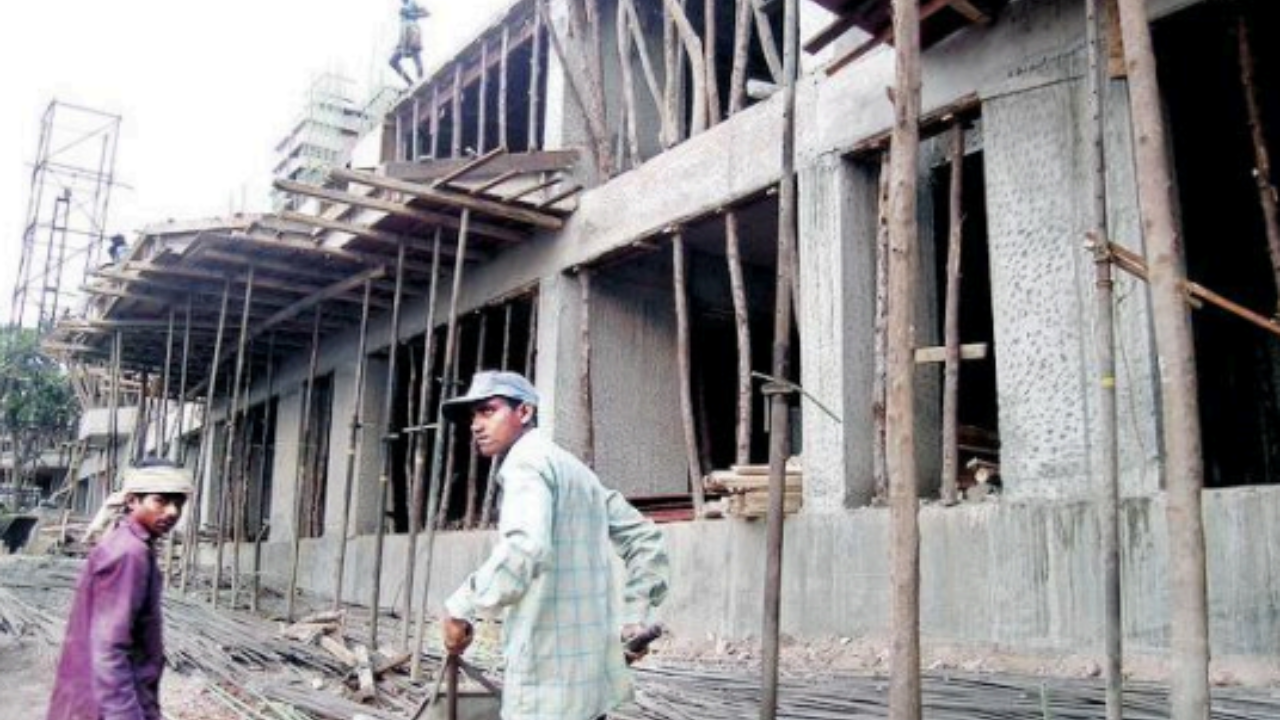Rajasthan
‘give It Firms Sops, Realty Will See Demand, Jobs Will Grow’ | Jaipur News
JAIPUR: Real estate developers urge the government to lure IT companies with better incentives in policies as it is a key sector that drives demand for housing. Drawing comparison to states like Telangana and others, real estate body Credai-Rajasthan said incentives on stamp duty, land cost, conversion charges, power tariffs, VAT, and investment subsidy will be key in attracting IT companies to the state.
Credai-Rajasthan president Dhirendra Madan said, “We have already brought to the attention of the state government the importance of the IT sector. We hope the Budget to a package for the IT sector whose growth will lift the real estate sector.”
Madan said that IT is a people-driven industry with better salary perks and its growth will not only generate huge number of jobs but also support the real estate sector that influences the fortunes of scores of industries in sectors like steel, cement, electricals, furniture, and several others.
“Like IT, real estate also a people-intensive industry. It employs large number of people from all walks of life. It is empirically evident that if real estate sector is doing well, the economy is fine fettle,” added Madan. He also highlighted the industry body has appealed the state government several times in the past for reducing stamp duty, which is one of the highest in the country, at about 8.8%, compared to 5-6% in many states.
“The rates are not high alone. There is an incidence of double taxation. Developers pay stamp duty and registration charges at the time of land purchase. Thereafter, at the time of sale of flats or houses, the buyer again pays stamp duty and registration charges. We hope the budget rationalises this double taxation,” added Madan.
Transfer Development Rights (TDR) is another issue that is slowing down project implementation and not helping the traffic situation. Madan said, “TDR policy will provide a great strength to the government in negotiating with the landowners, thus reducing huge financial burden for speedy acquisition of the land to complete missing road links for major projects.
It will also encourage the landowners to voluntarily come forward for surrendering the road widening portion on issuance of TDR certificate,” he added.
Under the policy, the landowners can sell the TDR certificate for the portion of the land used for the road. The certificates would carry, for example, 4-times of the land price,and are sold along with the rest land of the owners. This also helps government not to pay money for acquiring land for roads.
Developers are also urging the government to reduce electricity charges for projects under construction. The rates are currently around 18% a unit.
Credai-Rajasthan president Dhirendra Madan said, “We have already brought to the attention of the state government the importance of the IT sector. We hope the Budget to a package for the IT sector whose growth will lift the real estate sector.”
Madan said that IT is a people-driven industry with better salary perks and its growth will not only generate huge number of jobs but also support the real estate sector that influences the fortunes of scores of industries in sectors like steel, cement, electricals, furniture, and several others.
“Like IT, real estate also a people-intensive industry. It employs large number of people from all walks of life. It is empirically evident that if real estate sector is doing well, the economy is fine fettle,” added Madan. He also highlighted the industry body has appealed the state government several times in the past for reducing stamp duty, which is one of the highest in the country, at about 8.8%, compared to 5-6% in many states.
“The rates are not high alone. There is an incidence of double taxation. Developers pay stamp duty and registration charges at the time of land purchase. Thereafter, at the time of sale of flats or houses, the buyer again pays stamp duty and registration charges. We hope the budget rationalises this double taxation,” added Madan.
Transfer Development Rights (TDR) is another issue that is slowing down project implementation and not helping the traffic situation. Madan said, “TDR policy will provide a great strength to the government in negotiating with the landowners, thus reducing huge financial burden for speedy acquisition of the land to complete missing road links for major projects.
It will also encourage the landowners to voluntarily come forward for surrendering the road widening portion on issuance of TDR certificate,” he added.
Under the policy, the landowners can sell the TDR certificate for the portion of the land used for the road. The certificates would carry, for example, 4-times of the land price,and are sold along with the rest land of the owners. This also helps government not to pay money for acquiring land for roads.
Developers are also urging the government to reduce electricity charges for projects under construction. The rates are currently around 18% a unit.





